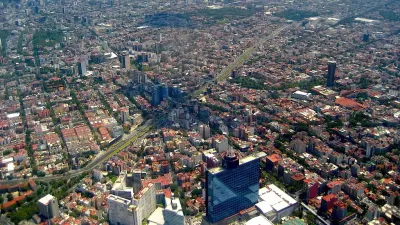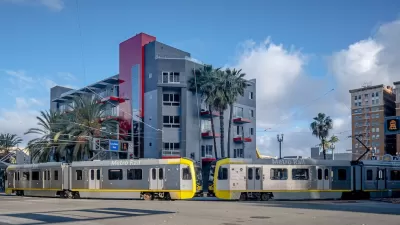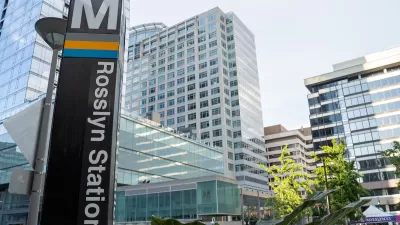Mexico's capital city and the largest city in North America turned the new regulation into law earlier this month.

Mexico City has taken a step that many urbanists have advocated for around the world: they've eliminated parking minimums. "The policy change applies to every land use and throughout the entire city of 8.8 million residents," Angie Schmitt reports for Streetsblog USA. In place of minimums, new developments will now have a cap on the amount of parking they're allowed to build.
"The old rules mandated parking even though only about 30 percent of Mexico City residents own cars and the city has a well-developed subway system," Schmitt reports. Backers say this change will encourage more development around transit and save money for those renters and home buyers who are not interested in parking. Their counterparts in the United States would have to subsidize the cost of parking whether they wanted it or not.
FULL STORY: It’s Official: Mexico City Eliminates Mandatory Parking Minimums

Trump Administration Could Effectively End Housing Voucher Program
Federal officials are eyeing major cuts to the Section 8 program that helps millions of low-income households pay rent.

Planetizen Federal Action Tracker
A weekly monitor of how Trump’s orders and actions are impacting planners and planning in America.

Ken Jennings Launches Transit Web Series
The Jeopardy champ wants you to ride public transit.

California Invests Additional $5M in Electric School Buses
The state wants to electrify all of its school bus fleets by 2035.

Austin Launches $2M Homelessness Prevention Fund
A new grant program from the city’s Homeless Strategy Office will fund rental assistance and supportive services.

Alabama School Forestry Initiative Brings Trees to Schoolyards
Trees can improve physical and mental health for students and commnity members.
Urban Design for Planners 1: Software Tools
This six-course series explores essential urban design concepts using open source software and equips planners with the tools they need to participate fully in the urban design process.
Planning for Universal Design
Learn the tools for implementing Universal Design in planning regulations.
Ada County Highway District
Clanton & Associates, Inc.
Jessamine County Fiscal Court
Institute for Housing and Urban Development Studies (IHS)
City of Grandview
Harvard GSD Executive Education
Toledo-Lucas County Plan Commissions
Salt Lake City
NYU Wagner Graduate School of Public Service





























